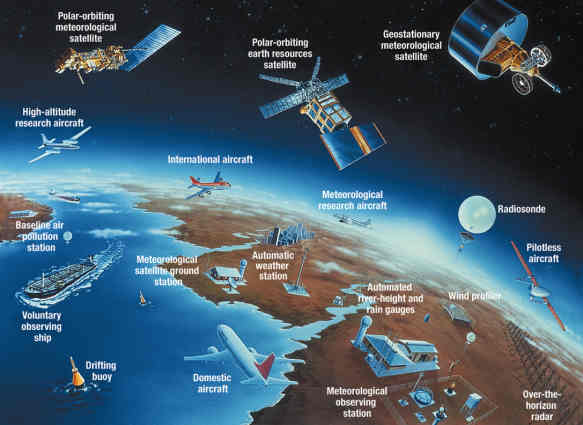Coronavirus to Impede Climate Monitoring in the World

The World Meteorological Organization (WMO) is concerned about the impact of the COVID-19 pandemic on the quantity and quality of weather observations and forecasts, as well as atmospheric and climate monitoring.
WMO’s Global Observing System serves as a backbone for all weather and climate services and products provided by the 193 WMO Member states and territories to their citizens. It provides observations on the state of the atmosphere and ocean surface from land-, marine- and space-based instruments. This data is used for the preparation of weather analyses, forecasts, advisories, and warnings.
“National Meteorological and Hydrological Services continue to perform their essential 24/7 functions despite the severe challenges posed by the coronavirus pandemic,” said WMO Secretary-General Petteri Taalas. “We salute their dedication to protecting lives and property but we are mindful of the increasing constraints on capacity and resources,” he said.
“The impacts of climate change and growing amount of weather-related disasters continue. The COVID-19 pandemic poses an additional challenge, and may exacerbate multi-hazard risks at a single country level. Therefore it is essential that governments pay attention to their national early warning and weather observing capacities despite the COVID-19 crisis,” said Mr Taalas.
Large parts of the observing system, for instance its satellite components and many ground-based observing networks, are either partly or fully automated. They are therefore expected to continue functioning without significant degradation for several weeks, in some cases even longer. But if the pandemic lasts more than a few weeks, then missing repair, maintenance and supply work, and missing redeployment will become of increasing concern.
Some parts of the observing system are already affected. Most notably the significant decrease in air traffic has had a clear impact. In-flight measurements of ambient temperature and wind speed and direction are a very important source of information for both weather prediction and climate monitoring.





